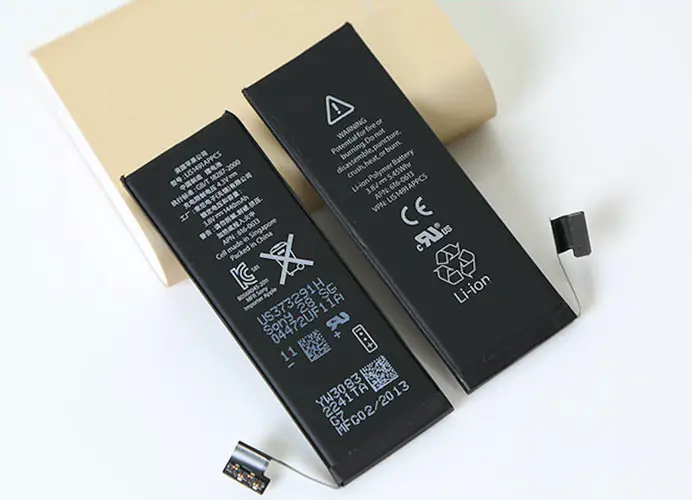
Power Supply Testing & Certification Services
A power supply is a device that converts one form of energy into the requiRED electrical energy. High-quality power supplies typically have certification marks from mULtiple countries, such as fcc and UL in the United States. These certifications are granted by regulatory bodies based on industry technical standards that cover aspects like manufacturing processes, electromagnetic interference, and safety protection. Only products that meet these specific standards can use certification marks on their packaging and product surfaces after successfully passing certification tests, ensuring credibility.

Classification of Power Supplies
By Energy Conversion Direction:
- AC/DC Power Supply – Also known as primary power supply or industrial power supply
- DC/DC Power Module – Also known as secondary power supply
- DC/AC Inverter – Includes UPS (Uninterruptible Power Supply)
- AC/AC Power Supply – Includes substations, frequency converters, etc.
By Application Field:
- Industrial Power Supply – Used in telecommunications, medical, agriculture, and electric power applications; operating temperature: -20 to 85°C
- Military Power Supply – Designed for defense applications; operating temperature: -40 to 125°C
- Consumer Power Supply – Used in general consumer electronics; operating temperature: 0 to 70°C
By Operating Principle:
1. Linear Power Supply
- The power amplification components (such as power transistors or MOSFETs) operate in the amplification region (linear region) at mains frequency (50Hz).
- Advantages: Low output ripple (high DC purity), minimal electromagnetic interference (EMI).
- Disadvantages: Low power density, high power consumption.
2. Switching Power Supply
- The power amplification components (such as power transistors or MOSFETs) operate in the switching region (on/off states) at high frequency (20KHz to several hundred KHz).
- Advantages: Compact size, lightweight, high power density.
- Disadvantages: High EMI, higher output ripple.
Key Components of Power Supplies
- Switching Components – Such as IGBTs, field-effect transistors (FETs), and power MOSFETs
- Energy Storage Components – Such as storage capacitors
- Magnetic Components – Such as PFC boost inductors and transformers
- Rectifier Components – Including rectifier diodes, freewheeling diodes, PFC boost diodes, and rectifier bridges
Power Supply Testing Items
Basic Performance testing - Overall Performance
- Appearance and craftsmanship inspection
- Efficiency
- Power factor
- Static regulation (load effect, line regulation, voltage accuracy)
- Output voltage temperature coefficient
- Acoustic noise
Basic Performance Testing - Input Characteristics
- Overvoltage, undervoltage, and phase loss protection for AC input
- Soft start time
- Input voltage frequency testing
- High and low voltage impact testing
Basic Performance Testing - Output Characteristics
- Output voltage deviation
- Output voltage adjustment range
- Power-on/off overshoot (input current/output voltage)
- Telephone weighting noise voltage
- Broadband noise voltage
- Discrete noise voltage
- Peak-to-peak noise voltage
- Load transient recovery time (dynaMIC response)
- Load impact test
- Output undervoltage protection
- Output overvoltage protection
- Output overcurrent protection
- Output short circuit protection
- Enclosure over-temperature protection
Environmental reliability testing
- High-temperature operational test
- High-temperature storage test
- Low-temperature operational test
- Low-temperature storage test
- Constant humidity/temperature and high-temperature humidity test
- Vibration and shock test
- High and low-temperature cycling operational test
emc testing
- Conducted emissions test
- Radiated emissions test
- Harmonic current limit test
- Electrostatic discharge immunity test
- Radiated electromagnetic field immunity test
- RF-induced conducted immunity test
- Electrical fast transient/burst immunity test
- Surge immunity test
- Voltage dips and short interruptions immunity test
Safety Compliance Testing
- Insulation resistance test
- Dielectric strength test
- Ground leakage current test
Reliability Assessment
- Maximum electrical stress test for key components
- Thermal testing of major power components
- Feedback loop stability evaluation
- Thermal design evaluation
Power Supply Certification Projects
- Certifications: UL, CE, FCC, RoHS, C-TICK, Telecommunication Industry (TLC), Apple MFI certification, etc.
Email:hello@jjrlab.com
Write your message here and send it to us
 IEC 62471 Photobiological Safety of Lamps and Lamp
IEC 62471 Photobiological Safety of Lamps and Lamp
 New European Toy Standard EN 71-1:2026
New European Toy Standard EN 71-1:2026
 EN71 Series Standards Compliance February 13, 2026
EN71 Series Standards Compliance February 13, 2026
 European Toy Safety Standard EN 71-20:2025
European Toy Safety Standard EN 71-20:2025
 EN 18031 Certification for Connected Devices on Am
EN 18031 Certification for Connected Devices on Am
 Compliance Guide for Portable Batteries on Amazon
Compliance Guide for Portable Batteries on Amazon
 2026 EU SVHC Candidate List (253 Substances)
2026 EU SVHC Candidate List (253 Substances)
 LFGB Certification Cost and Timeline Guide
LFGB Certification Cost and Timeline Guide
Leave us a message
24-hour online customer service at any time to respond, so that you worry!




